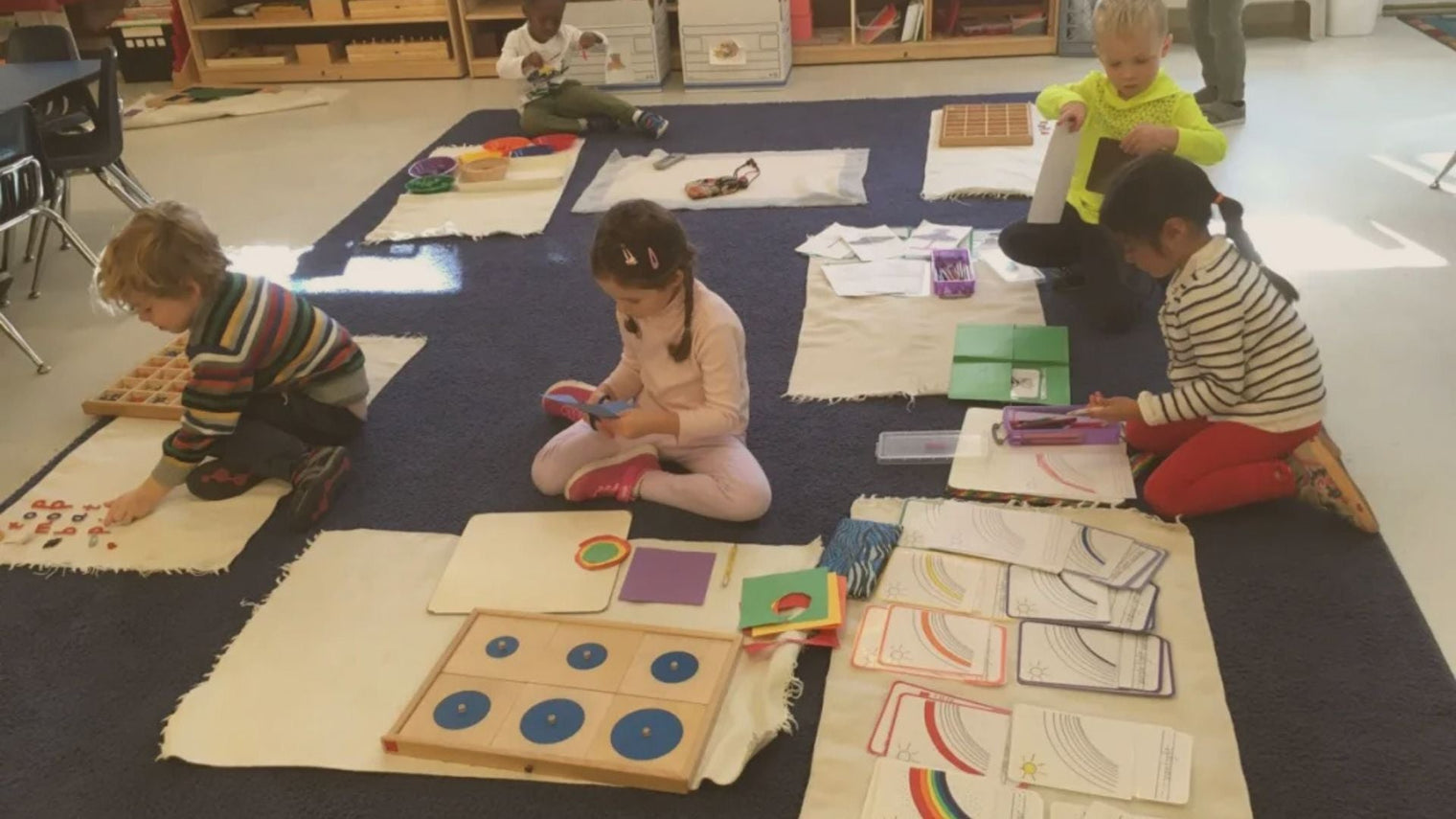Discipline isn’t about punishment—it’s about guidance. For parents, the challenge is finding a way to set boundaries without crushing a child’s natural curiosity or independence.
This is where the Montessori method shines. Instead of focusing on rewards and punishments, Montessori discipline emphasizes respect, consistency, and helping children learn to regulate themselves.
As more parents look for ways to raise confident, independent kids, Montessori principles have gained widespread attention.
And it’s not just about what happens in the classroom—these ideas work beautifully at home too.
If you’ve been wondering how to discipline without yelling, bribing, or constant time-outs, Montessori gives you a framework that’s calm, respectful, and effective.
At Dannico Woodworks, we’ve seen firsthand how the environment you create at home—right down to the furniture your child uses—can reinforce this method.
When kids have spaces designed for them, they feel trusted and capable, making discipline feel less like control and more like guidance.
What Is Montessori Discipline?
Montessori discipline is all about teaching, not punishing. Instead of imposing rules from above, you guide your child toward understanding why certain behaviors matter and help them practice making better choices. The goal is to raise children who are self-disciplined, not just obedient when someone is watching.
Key principles include:
-
Respect for the child: Treating children as capable individuals with valid feelings and thoughts.
-
Prepared environment: Setting up spaces where children can succeed independently.
-
Natural consequences: Allowing kids to experience the results of their actions in a safe, age-appropriate way.
-
Consistent boundaries: Providing clear expectations without harshness.
How Do I Apply Montessori Discipline at Home?
1. Create an Environment That Encourages Independence
Children misbehave less when they feel empowered to do things for themselves. Arrange your home so your child can reach their own toys, pour their own drink, or hang up their coat.
At Dannico Woodworks, we design furniture that’s perfectly sized for kids—tables, chairs, and shelves they can actually use on their own.
When children have control over their space, they feel more secure and respected, which reduces frustration-driven behavior.
2. Use Clear and Consistent Boundaries
Children need freedom, but they also need limits. For example, “You may choose one toy to play with now, then put it away before starting another.”
Calm, consistent rules create a sense of order. Instead of yelling when your child forgets, simply guide them back to the rule and let them try again.
3. Offer Choices Instead of Commands
Instead of “Put on your shoes now!” try “Would you like to wear the red shoes or the blue shoes today?” This small shift gives children a sense of control, which leads to less resistance.
4. Model the Behavior You Want to See
Children watch you more than they listen to you. If you want calm problem-solving, show it.
If you want respect, speak respectfully to them—even when correcting them. Montessori discipline works because it’s rooted in mutual respect, not fear.
5. Allow Natural Consequences When Safe
If a child refuses to wear a coat on a chilly day, they’ll feel cold—and that discomfort teaches more than a lecture ever could.
Of course, the key is making sure these consequences are safe and age-appropriate.
6. Guide, Don’t Punish
When a child spills water while pouring a drink, don’t scold—hand them a cloth and show them how to clean up.
Mistakes become learning opportunities instead of reasons for shame. This approach builds confidence and teaches responsibility.
7. Observe Before You Intervene
Sometimes behavior problems are really unmet needs. Is your child acting out because they’re tired, hungry, or overwhelmed?
Montessori discipline encourages parents to pause, watch, and understand before reacting.
Why Montessori Discipline Works
-
Builds intrinsic motivation: Kids learn to do the right thing because it makes sense, not because they’re afraid of punishment.
-
Strengthens parent-child relationships: Respectful guidance builds trust rather than resentment.
-
Encourages problem-solving skills: Children learn how to think through decisions rather than blindly follow rules.
-
Prepares kids for real life: In adulthood, there’s no one handing out gold stars or time-outs—self-discipline is the real skill.
How Dannico Woodworks Supports Montessori Parenting
The environment you create at home matters just as much as the words you use. When kids have furniture that fits their size—like low shelves for toys, child-height tables for activities, and sturdy chairs they can move themselves—they learn independence naturally.
At Dannico Woodworks, every piece is built with this philosophy in mind:
-
Safe: Rounded edges, solid materials, and durable finishes.
-
Functional: Designs that help kids reach, choose, and put things away on their own.
-
Beautiful: Because children deserve spaces as thoughtfully designed as any adult’s home.
By combining Montessori principles with our handcrafted furniture, we help you create an environment where discipline feels natural—less about control and more about collaboration.
FAQs
Is Montessori discipline too “soft” on kids?
No. Montessori isn’t about letting children do whatever they want. It’s about firm boundaries delivered with respect, not fear.
How do I handle serious misbehavior using Montessori methods?
Stay calm, remove your child from harm if necessary, and guide them to make amends. The focus is on teaching, not shaming.
Can Montessori discipline work with siblings of different ages?
Yes. Because it’s based on respect and natural consequences, it adapts well to children at different developmental stages.
Do I need special Montessori furniture to use this method?
You can start without it, but furniture designed for kids makes it much easier for them to be independent—reinforcing everything Montessori teaches.
Final Thoughts
Montessori discipline isn’t about controlling your child—it’s about helping them learn to control themselves.
By creating an environment where kids feel respected, trusted, and capable, you’re giving them the tools they’ll carry for life.
At Dannico Woodworks, we’re proud to support parents who want to raise independent, confident children.
If you’re ready to create a home that encourages growth while making discipline feel natural, explore our handcrafted Montessori-inspired furniture.
How could your home change if your child had more independence—and fewer power struggles?

